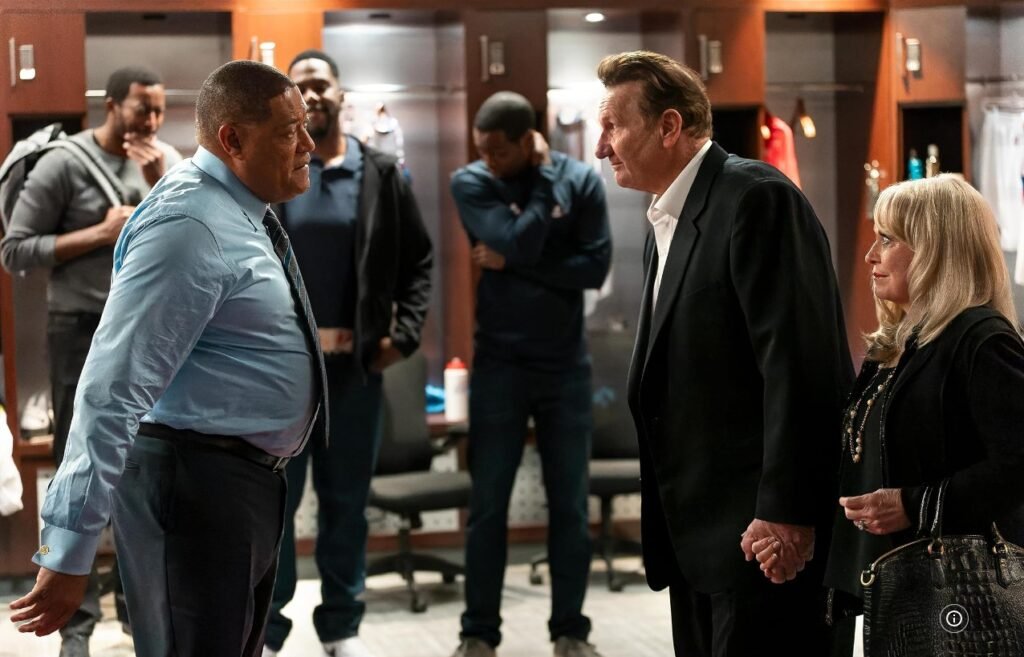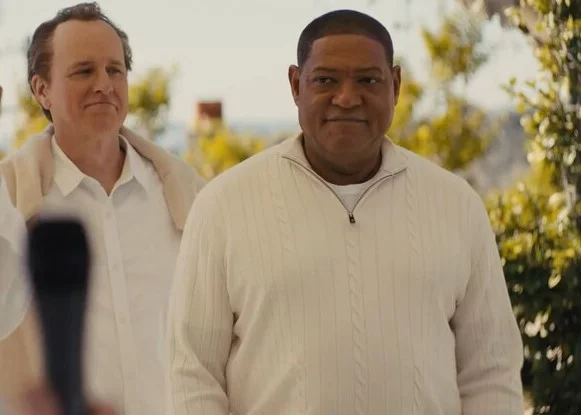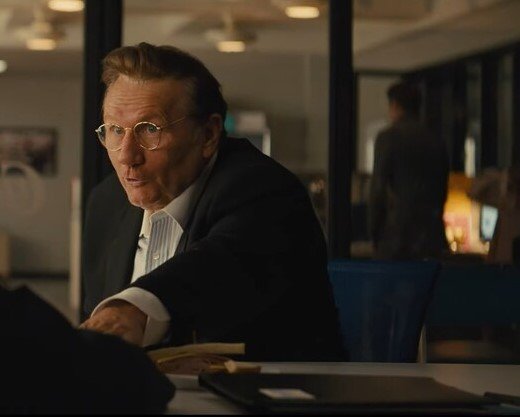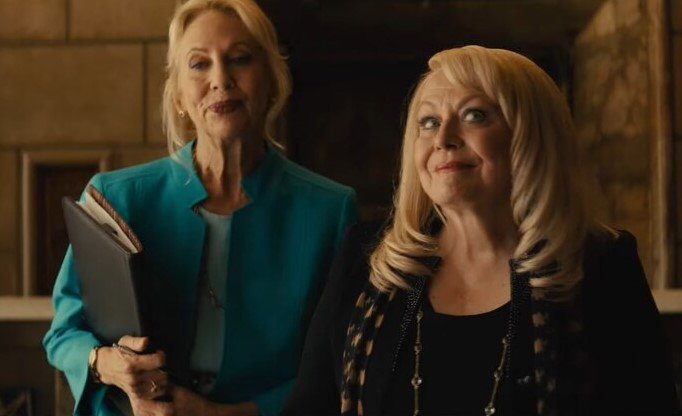Clipped (Hulu) Story :-
Clipped (Hulu) The series tracks the downfall of Donald Sterling (portrayed by Ed O’Neill), the former owner of the NBA’s LA Clippers basketball team. His precipitous decline begins with a rigorous investigation and culminates in his banning from the league, triggered by the release of audio recordings in which he made racist remarks.
Clipped (Hulu) Release Date, Trailer, Songs, Cast
| Release Date | 4 June 2024 |
| Language | English |
| Genre | Biography, Drama, Sport |
| Episodes | 6 |
| Cast | Kelly AuCoin, Michael Heidemann, Jock McKissic, Laurence Fishburne, Ed O’Neill, Jacki Weaver, Charlie McElveen, Petri Hawkins Byrd, Jourdan Sweeney, Mike Miller |
| Director | Kevin Bray |
| Writer | Rembert Browne, Tearrance Arvelle Chisholm, Tracey Scott Wilson |
| Cinematography | Bryce Fortner, Jonathan Furmanski |
| Music | Wendy Wang |
| Producer | Kevin Bray, Zanne Devine, Nina Jacobson, Brad Simpson, Gina Welch |
| Production | Color Force, FX Productions |
| Certificate | 16+ |
Clipped (Hulu) Review :-
Clipped (Hulu) You can’t discuss “Clipped” without mentioning “Winning Time,” so let’s address the comparison head-on. Positioned as “the scandalous story of L.A.’s other basketball team,” the FX limited series acknowledges the Clippers’ perennial role as secondary to the Lakers since their arrival in 1984. While the Lakers received the grand treatment first with an HBO drama boasting star-studded cast and Adam McKay as executive producer, “Winning Time” kicked off with a flash-forward to 1992 and concluded its initial season in the spring of 1980, leaving its sweeping decade-long narrative unfinished.
In contrast, “Clipped” takes a more focused approach, which proves advantageous. Spanning just six episodes, it delves into the rapid sequence of events starting from the 2014 release of a recorded conversation between Clippers owner Donald Sterling (played by Ed O’Neill) and his assistant/mistress/arm candy, V. Stiviano (portrayed by Cleopatra Coleman). This scandalous revelation of Sterling’s racist remarks triggered a massive public outcry that ultimately led to his ouster. Coincidentally, the controversy initially centered on a photo of Stiviano with Magic Johnson, a Lakers legend from the ’80s—thus connecting back to “Winning Time” in a poignant twist of fate.
Adapted from the ESPN podcast “The Sterling Affairs” by showrunner Gina Welch, “Clipped” offers a contrasting perspective to the largely celebrated narrative of “Winning Time.” Both Donald Sterling and longtime Lakers owner Jerry Buss were Southland real estate magnates—undeniably wealthy but overshadowed by the tech titans and corporate groups that followed. Sterling famously sold the Clippers to former Microsoft CEO Steve Ballmer for a staggering $2 billion. Buss, revered as a maverick, penetrated the NBA ownership elite and led the Lakers to triumph. In contrast, Sterling, now 90, is depicted as a miserly figure who mismanaged his team with disdain for his staff. Entrusting an organization to the whims of one man is always risky; behaviors once overlooked in an earlier era often don’t withstand modern scrutiny. Buss, too, had a reputation as a womanizer, though it was less scrutinized before the era of smartphones. He passed away in 2013, just a year before Sterling’s downfall.
“Clipped” delves into a sordid narrative of sex, wealth, race, and celebrity, adopting a tone reminiscent of daytime soap operas. If there are heroes in this tale, Welch and her writers spotlight Doc Rivers (portrayed by Laurence Fishburne), the respected coach charged with reviving the team’s fortunes despite Sterling’s hindrance. Rivers and his core players—Blake Griffin (played by Austin Scott), Chris Paul (portrayed by J. Alphonse Nicholson), DeAndre Jordan (played by Sheldon Bailey), Matt Barnes (portrayed by Sarunas J. Jackson), and JJ Redick (portrayed by Charlie McElveen)—emerge as sympathetic figures, compelled to navigate the impossible dilemma of enriching a man who views them as inferior or sacrificing their careers due to his actions. However, at the heart of “Clipped” lies a clash among morally ambiguous figures—Stiviano, Sterling, and Sterling’s wife Shelly (portrayed by Jacki Weaver)—each driven by self-interest and blind to their own shortcomings.
Apart from the Lakers’ imposing presence, any scandal in Los Angeles sports inevitably recalls O.J. Simpson. While the first season of “American Crime Story” skillfully balanced the sensational aspects of the Simpson trial with its tragic, enduring themes, “Clipped” takes a somewhat different approach. Ed O’Neill delivers a delightfully detestable performance as a caveman-like figure whose bigotry and crudeness are so exaggerated that they provoke laughter. Rich Sommer and Kelly AuCoin inject further humor as inept underlings attempting, and failing, to mitigate Sterling’s ongoing debacle in real-time. Meanwhile, Jacki Weaver brings a deceptive sharpness to Shelly, evolving her character from a seemingly innocent elder to a savvy operator, depending on circumstances.
Aside from a misguided flashback episode that disrupts the season with unnecessary exposition, “Clipped” maintains a swift and frenetic pace, capturing the essence of a news story spiraling out of control.
“Clipped” falters when attempting to expand its focus beyond the immediate chaos to broader thematic insights. Apart from Sterling, every significant character is paired with a confidant who serves as their moral compass: Justine (Harriet Sansom Harris), a woman who bravely left her wealthy, despicable husband and encourages Shelly to follow suit; Deja (Yvonna Pearson), a former VJ who advises Stiviano on the fleeting nature of fame; and remarkably, LeVar Burton as himself, a fellow Black celebrity who discusses with Rivers the delicate balance of maintaining mass appeal without compromising one’s cultural identity, particularly during steam room sessions. While their perspectives are valid, these characters often seem more like mouthpieces for contemporary viewpoints than realistically flawed individuals.
Meanwhile, a behind-closed-doors debate among the Clippers about whether to play after the tape’s release transforms into a philosophical discussion on athlete activism. This culminates in Rivers showing a clip of Tommie Smith and John Carlos raising their fists at the 1968 Olympics. Stiviano remains an enigmatic figure, preserved behind her iconic, face-obscuring visor and portrayed by Coleman with a childlike stubbornness. She is most compelling when “Clipped” presents her contradictions without fully explaining them: a woman who denied her Black heritage while sparking outrage over anti-Black racism; someone who embraced materialism while also adopting two young boys during her fleeting fame. However, when depicted watching Kim Kardashian’s wedding as if studying a manual, the portrayal becomes overly simplistic for such a complex and enigmatic character.
Like “Uncut Gems” before it, “Clipped” inhabits a curious realm: a period piece set in the recent past. Interstitials replicate basic, block-text memes within Instagram’s decade-old interface, while Rivers receives a private call from then-President Obama. This approach resurrects nuanced details often smoothed over by time. Did you recall that both Rivers and NBA commissioner Adam Silver (Darin Cooper) were new to their roles, facing an existential threat to their organizations before establishing authority? Or the tape leaked during a rare playoff run for the Clippers, matched against the ascendant, Steph Curry-led Golden State Warriors in the first round? History itself provided a compelling narrative canvas before Welch and her team even began.
Yet, “Clipped” straddles an awkward middle ground between short- and long-term memory. Implicitly, the Sterling saga is positioned as a precursor to the NBA’s 2020 walkouts following George Floyd’s murder and Jacob Blake’s shooting. Debates about player actions and their eventual impact extend far beyond the immediate dilemma. Should the Clippers have done more than silently protest? Did ousting Sterling alter a system that had supported him for decades? “Clipped” cannot definitively answer these questions; the NBA and its stakeholders continue to grapple with them. Instead, the series immerses itself in faithfully recreating an absurd, exasperating moment in time. In both athletics and art, maintaining a tight focus yields rich dividends.
The first two episodes of “Clipped” are now streaming on Hulu, with remaining episodes airing weekly on Tuesdays.




